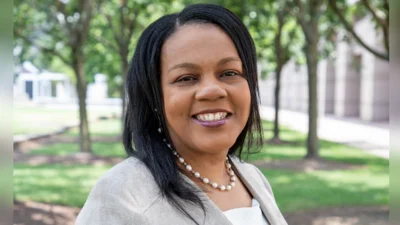North Carolina Gov. Roy Cooper.
North Carolina Gov. Roy Cooper.
Gov. Roy Cooper has failed to ensure adequate transparency on COVID-19, according to a major North Carolina newspaper.
The Charlotte News & Observer, in an April 16 editorial, said the governor needs to provide requested public documents pertaining to the pandemic.
“Gov. Roy Cooper announced a new initiative to fight COVID-19 in North Carolina through what he calls a program of “Testing, tracing and trends,” the editorial stated. “It’s a strong proposal that’s modeled after progressive testing plans in other states, including California. But Cooper’s plan is missing another important “T” — telling North Carolinians all the information that’s been gathered.”
The News & Observer, which has the second-largest circulation Carolinas papers, said its news staff has sought relevant information but was denied it. That has reduced public trust in the state’s efforts to deal with the pandemic.
“We believe the governor and Department of Health and Human Services (DHHS) have been thoughtful and aggressive in slowing the spread of COVID-19, but their fight is hampered if people don’t believe they have a full picture of the virus. In some cases, they don’t,” the editorial stated. “The News & Observer has made multiple requests of DHHS for records, data and policies involving COVID-19 and nursing homes, which has seen a surge of infections. Thus far, those requests have gone unfulfilled.
“Such information is critical, not only now but moving forward as our leaders make important decisions on loosening coronavirus restrictions. The road ahead could be especially rocky and unnecessarily political if North Carolinians don’t have another “T” — trust in what their leaders are telling them.”
P. Brooks Fuller, director of the North Carolina Open Government Coalition, said although he is familiar with the news coverage, he has not seen the documents.
“I cannot comment on the requests that the News & Observer filed because they have not been shared with me, nor have the responses,” Fuller said. “For the requests going unfulfilled, I don’t think this is out of the ordinary. It is unfortunate, however, that more public bodies don’t have the infrastructure in place to handle public records requests as rapidly as they come in. This is not unique to North Carolina. Lots of states have tremendous backlogs of requests for records.”
Fuller, also an assistant professor of journalism at the Elon School of Communications in Elon, said this matter does highlight the North Carolina access law, which has a distinction between “records” and “information.”
“With few exceptions, a government body is not required to provide information to a citizen or media outlet making a request,” he said. “They do, however, have to produce responsive records unless they are exempt. That, I think, is the root cause of the issue with the nursing homes. DHHS was not necessarily required to produce the names of nursing homes where outbreaks occurred, but they would have to produce records subject to public records requests.
“It’s an important distinction because it can cause a lot of problems for media outlets trying to tell important stories about public health issues. When the issue comes down to public health and health communication, I think experts in those fields are the best to give advice and comment.”
He said one thing is clear: Transparency is the best option.
“In all matters related to freedom of information, government officials should make every effort to provide responsive records as quickly as possible and consistent with the law,” Fuller said.






 Alerts Sign-up
Alerts Sign-up